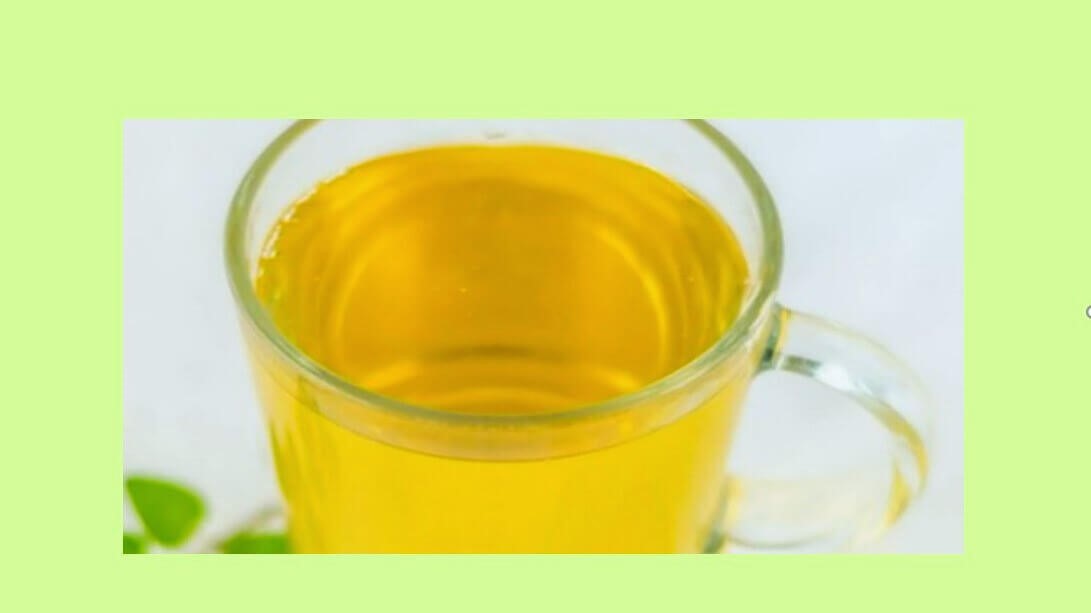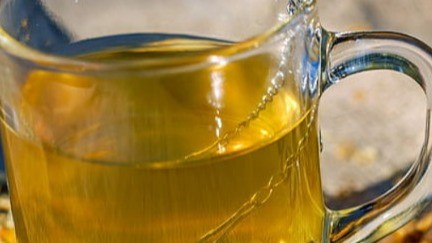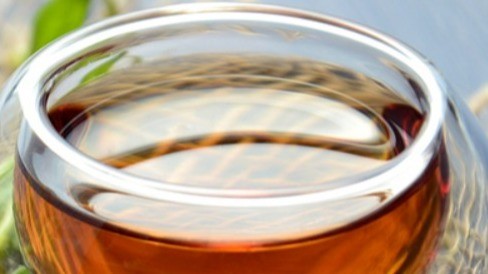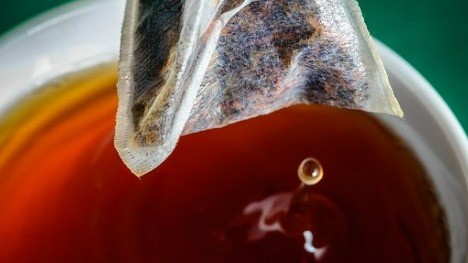Herbal tea lovers are always on the lookout for new, refreshing options rooted in natural traditions. Many people enjoy rotating and adding different natural ingredients into their diets as a way to explore variety and flavor. Herbal infusions are valued by many for their comforting and flavorful qualities, and among these, oregano tea is emerging as a popular option. Oregano is widely famous as a “pizza herb” and one of the most valued spices worldwide. It is cherished not only for its bold flavor but also for its use in traditional wellness practices across cultures. Its aroma and natural plant compounds make it a favorite among herbal tea enthusiasts. While oregano tea is not a discovery, our growing awareness for better health is making it a favored recipe. In this article, we will explore what oregano is, whether it is good to drink oregano tea, oregano herb tea benefits, popular oregano tea recipes, and potential side effects.
So chaiophile, brace yourself up for an exciting brewing journey!
What is Oregano Herb?
Oregano is the dried leaves of the Mediterranean or Mexican oregano herb, the two major but distinct varieties.
The most popular of the two is the Mediterranean oregano, also known as Greek oregano or wild marjoram. This variety is part of the mint (Lamiaceae) family and is native to the Mediterranean region. It has a strong taste that is slightly bitter with a hint of mint. The Mediterranean variety of oregano is closely related to marjoram, another fragrant herb in the mint family.
Mexican oregano is a member of the Verbenaceae (verbena) family. It has a stronger, bolder flavor than regular oregano with a touch of lemon. You may feel the smell and taste of both Mediterranean and Mexican oregano similar due to a few shared flavor and aroma compounds. However, when tasted side by side, their differences become palpable.
Oregano plants can grow up to 90 cm (35 inches) tall and 50 cm (20 inches wide). Its leaves are spade-shaped and olive-green. The flowers are pink, purple, or white and 4-7 cm long. The dried oregano leaves have a more intense flavor than the fresh leaves.
Nutritional Profile of Oregano Herb
Oregano herb contains many natural compounds—one major reason why oregano herb tea’s benefits are catching eyes among wellness enthusiasts. They contribute to its distinct aroma, taste, and traditional uses. Let us take a closer look at the components found in oregano herb:
- Phytochemicals
- Rich in flavonoids and phenolic acid – plant-based compounds that are naturally present in many herbs and spices.
- Includes rosmarinic acid known for its presence in various aromatic plants and widely studied in botanical research.
2.) Essential Oils
- Contains important components carvacrol and thymol. These two key aromatic elements make the essential oil potent.
- Also includes limonene, pinene, ocimene, and caryophyllene. They give oregano a strong scent and often contribute to food preservation.
3.) Vitamins
- Vitamin K
- Vitamin A
- Vitamin E
- Vitamin C
- Folates
- Vitamin B1
- Vitamin B2
- Vitamin B3
4.) Minerals
- Sodium
- Potassium
- Calcium
- Copper
- Iron
- Magnesium
- Manganese
- Zinc
Is Oregano Tea Good for You?
Oregano tea has a simple, grounded, and slightly bitter taste. It smells distinct and is often valued in traditional wellness practices for its unique plant compounds, including essential oils, flavonoids, and phenolic acids. While modern studies mainly focus on oregano in its concentrated forms—such as essential oils or extracts—the herb has long been used in traditional practices across different cultures. Historical records suggest that oregano was traditionally used for respiratory comfort and digestive balance. The oregano herb tea benefits are based on traditional knowledge, and more scientific research is needed to fully understand its effects.
So, if you choose to include oregano tea in your routine, enjoy it in moderation and do not consider it as a substitute for medical treatment.
Oregano Herb Tea Benefits
1.) Helps in Muscle Recovery
If you are a fitness enthusiast, you might find oregano tea a flavorful addition to your herbal routine. In one study involving soldiers undergoing intense physical training, oregano supplementation was associated with reduced oxidative stress and muscle strain. The above findings are based on oregano extract, and more research is needed to understand if similar effects apply to oregano tea. Oregano herb tea benefits are mostly due to its natural compounds like carvacrol, thymol, and rosmarinic acid, which are known for their antioxidant effects. So, if as a fitness lover you enjoy herbal teas as a part of your wellness routines, oregano tea may offer a flavorful and aromatic option worth trying.
2.) Oregano Tea Benefits for Female
Oregano herb tea benefits have been appreciated in traditional wellness systems, particularly for women.
- Some women enjoy it for its soothing qualities and natural aroma during times of hormonal changes.
- Some traditional practices suggest oregano tea may offer general support during hormonal fluctuations, though scientific evidence is limited.
- Powerful compounds like thymol, carvacrol, pulegone, and L-menthone are being studied for their antioxidant and calming properties.
- Oregano tea has been traditionally used for overall comfort during menstrual cycles.
- Conventional wisdom suggest it may support relaxation and ease occasional discomfort.
- Antioxidants found in oregano are known to support general cellular well-being.
- Oregano has been explored in early studies for its potential impact on cellular health, though such findings relate to concentrated extracts, not the tea form.
Women who enjoy herbal infusions may find oregano tea a pleasant addition to their self-care routine. It is best enjoyed in moderation and as a part of a balanced lifestyle.
3.) Oregano Tea Benefits for Lungs
Oregano herb tea benefits have been appreciated in traditional wellness circles for giving respiratory comfort. Its naturally occuring compounds like rosmarinic acid and carvacrol are of much interest in herbal research.
- Valued for Respiratory Ease – Oregano tea has been used in folk medicine for its comforting warmth and soothing properties during seasonal changes.
- Aromatic Support – The natural aroma of oregano tea is often praised for helping open up the sinuses and offering relief during congestion.
- Powerful Compunds – Rosmarinic acid in oregano tea is being studied for its antioxidant and calming properties in lab settings.
- Rich in Natural Nutrients – Essential nutrients like vitamins A, C, zinc, magnesium, and calcium in oregano tea provide general immune support.
- Part of Herbal Respiratory Rituals – In some cultures, oregano tea is used as part of natural wellness routines to support breathing comfort.
4.) Oregano Tea Benefits for Yeast Infection
Yeast infection is common among women. According to the Mayo Clinic, yeast infection is a fungal infection causing irritation, discharge, and itching of the vagina and vulva. Yeast infection is also known as candidiasis.
When oregano tea is made using the leaves, its essential oils get released into the tea. Certain natural compounds of essential oil, such as thymol and carvacrol, have drawn scientific interest for their antifungal properties. In herbal wellness systems, oregano has been valued for its potential to support the body’s natural defenses. Although oregano essential oil has been studied in labs for its potential effects against fungal organisms, its scientific validation is still an evolving area. The internal or topical use of oregano for yeast infections should only be considered under a healthcare professional’s guidance.
5.) Oregano Tea Benefits for Liver
Oregano herb tea benefits go beyond flavor—it is also gaining attention for its potential role in supporting liver health. While more clinical research is underway, traditional herbal practices early preclinical findings suggest that oregano tea may have supportive effects on liver health when consumed in moderation.
Here are some possible oregano herb tea benefits for the liver:
- May help reduce ammonia levels: Ammonia levels in the brain and blood often rise in liver problems. Preliminary studies suggest oregano may influence ammonia metabolism, which can be relevant in some liver-related conditions.
- Anti-inflammatory potential: Oregano tea has anti-inflammatory properties that may contribute to overall internal balance and support organs like the liver.
- Rich in antioxidants: The antioxidants present in oregano herb tea may help reduce oxidative stress, which is one of the factors associated with liver strain.
- May improve mood: Some compounds in oregano have been explored for their effects on mood and mental clarity, often compromised in people with liver-related problems.
- Comparable to milk thistle in early studies: In lab studies, oregano showed liver-protective effects similar to those seen with silymarin (from milk thistle), a widely studied liver herb.
6.) Oregano Tea Benefits for Women Skin
Oregano herb tea benefits may also extend to supporting skin health in women. Thanks to its antioxidant, antibacterial, anti-inflammatory, and anti-fungal properties, oregano tea has traditionally been valued in herbal skin care routines. Although more scientific research is needed, here are some potential skin-related benefits of drinking oregano herb tea:
- May offer antioxidant protection: Oregano tea contains flavonoids and phenolic acids which may help neutralize free radicals that contribute to skin aging and cell damage.
- Anti-inflammatory potential: The natural compounds in oregano tea may soothe skin irritation, redness, and swelling often caused due to environmental and hormonal changes.
- Possible support for wound healing: The essential oils found in oregano herb tea have been traditionally associated with enhanced skin repair and regeneration.
- May improve hydration and elasticity: Drinking oregano tea regularly, as part of a healthy lifestyle, may help maintain skin moisture and elasticity, contributing to a more youthful appearance.
- Could help delay signs of aging: The antioxidants in oregano herb tea may help delay the onset of wrinkles and fine lines on the skin.
7.) Oregano Tea Benefits for Diabetes
Oregano herb tea benefits are not just limited to digestion or immunity—it is also being explored for its potential role in supporting blood sugar balance. While more human studies are needed, early lab research suggests that compounds found in oregano (primarily in extract form) may have anti-diabetic effects when included as a part of a healthy lifestyle.
Here are some of the potential oregano herb tea benefits in the context of blood sugar management:
- May help regulate blood sugar levels: A 2021 lab study found that oregano extract might support lower blood glucose levels by influencing how sugar is metabolized in the body.
- May support better glucose absorption: Early research suggests oregano compounds may help cells absorb more glucose from the bloodstream, potentially aiding overall sugar regulation.
- Could inhibit carbohydrate breakdown: Oregano has shown potential to block enzymes responsible for converting carbs into glucose, a mechanism explored in preclinical models.
- May improve insulin sensitivity: A 2016 rodent study indicated that oregano extract might help reduce insulin resistance – a key issue in Type 2 diabetes.
- Possible support for metabolic health: In the same study, oregano appeared to influence how the body processes fat and sugar and supported tissue health in the liver and kidneys.
- Antioxidant and immune support: Oregano herb tea contains antioxidants that may help protect cells from oxidative stress – a contributing factor in metabolic disorders like diabetes.
8.) Oregano Tea Blood Pressure Benefits
Oregano is a common herb in the Mediterranean diet, which has been associated with various aspects of heart health. While more research is needed, oregano herb tea benefits may include supporting healthy blood pressure levels when consumed as part of a balanced lifestyle.
According to Today.com, a 2021 observational study found that individuals who consumed a higher amount of herbs and spices – including oregano – had slightly lower blood pressure readings 24 hours later. Additionally, oregano oil has been studied in lab setting for its ability to promote vasodilation (widening of blood vessels), which could contribute to lower blood pressure. However, these findings are based on concentrated extracts and do not directly reflect the effects of oregano herb tea.
How to Make Oregano Tea (Fresh & Dried)
Oregano tea is a simple, time-saving, and budget-friendly recipe. You prepare the tea with either fresh or dried oregano leaves. Both fresh and dried leaves are easily available. Try buying fresh leaves since they contain more nutrients than dried leaves. Drying the leaves may degrade some nutrients which are sensitive to heat or light.
Oregano Tea from Fresh Leaves
This recipe is for one cup of oregano tea for an individual.
- Take 2-3 fresh oregano leaves.
- Pour 1 cup of water into a container.
- Place the container on the stove and bring the water to a boil.
- Chop or crush the oregano leaves (using a knife or mortar and pestle).
- Add the crushed leaves to the boiling water.
- Let it steep for 2-3 minutes while boiling.
- Switch off the flame.
- Cover the container with a lid and let it sit for 1-2 minutes to allow essential oils and nutrients to infuse.
- Strain the tea using a tea strainer into a cup.
Enjoy your warm cup of oregano herb tea!
Oregano Tea from Dried Leaves
- Pour a cup of water into the container and put it on the stove to bring it to a boil.
- Put one teaspoon of dried oregano leaves in the boiling water.
- Switch off the flame and put a lid on the container.
- Let the dried leaves seep in the hot water for some 1-2 minutes.
- Now, strain the tea using a tea strainer.
Serve and enjoy as a part of your herbal tea routine.
Side Effects & Who Should Avoid Oregano Tea
Oregano is generally considered safe for most people when used in smaller quantities. However, certain individuals may want to exercise caution or consult a healthcare provider before using oregano herb tea regularly.
Here are a few situations where caution may be advised:
- Allergies to mint family herbs (Lamiaceae): Individuals who are allergic to plants in the mint family – such as basil, mint, sage, lavender, marjoram, or hyssop – may also react to oregano. Allergic responses could include skin irritation or digestive discomfort.
- Pregnancy and Breastfeeding: Consuming large amounts of oregano, especially in concentrated forms, is generally discouraged during pregnancy and breastfeeding. Some traditional sources suggest it may stimulate uterine activity, though scientific evidence is limited. Always consult your doctor before including herbal teas in your routine during this time.
- Bleeding risk: Oregano may have a mild blood-thinning effect. People scheduled for surgery are often advised to avoid herbs that could affect clotting, including oregano, for at least two weeks prior. Speak with your healthcare provider for personalized guidance.
- Diabetes and blood sugar management: Oregano may influence blood sugar levels. Individuals with diabetes or those taking blood sugar medications should speak with a healthcare professional before using oregano tea regularly and monitor their levels accordingly.
Also Read: Amla Juice Benefits for Skin: Nature’s Elixir for Radiance
Lemongrass Oil Benefits for Skin: Get A Healthy Glow Naturally
Ginger and Bay Leaf Tea Benefits – Powerful Herbal Combination
Giloy Juice Benefits You Must Reap
Takeaway Message
Oregano herb tea is a comforting and aromatic herbal drink that has been appreciated in traditional wellness systems for its soothing and refreshing qualities. It contains naturally occurring compounds with antioxidant, antibacterial, and anti-inflammatory properties, which may contribute to general well-being when consumed in moderation. Easy to prepare and budget-friendly, oregano tea can be a relaxing way to start your morning or wind down in the evening. Like all herbal teas, it is best enjoyed in balance. Overconsumption may lead to side effects, so it’s always a good idea to consult a healthcare professional before making it a regular part of your routine.
Disclaimer: This article is for informational purposes only and is not intended as medical advice. Please consult a healthcare professional before making dietary or health-related decisions.
Frequently Asked Questions
Q1.) What is the tea of oregano good for?
Ans.) Oregano tea has been traditionally enjoyed for its warm flavor and natural plant compounds like essential oils, flavonoids, and phenolic acids. These naturally occurring compounds have been studied in lab settings for their antioxidant and antimicrobial properties. In traditional wellness practices, oregano tea is often valued for its comforting qualities, though scientific research on the tea form is still developing. It is best enjoyed as part of a balanced lifestyle and not as a substitute for medical treatment.
Q2.) Who should not drink oregano tea?
Ans.) People allergic to oregano, pregnant & breastfeeding mothers, risk of bleeding must not drink oregano tea.
Q3.) Can I drink oregano tea at night?
Ans.) Yes, you can drink oregano tea late in the evening as it is caffeine-free and won’t disturb your sleep, unlike caffeinated beverages.






3 thoughts on “Oregano Herb Tea Benefits, Side Effects, & Recipes”